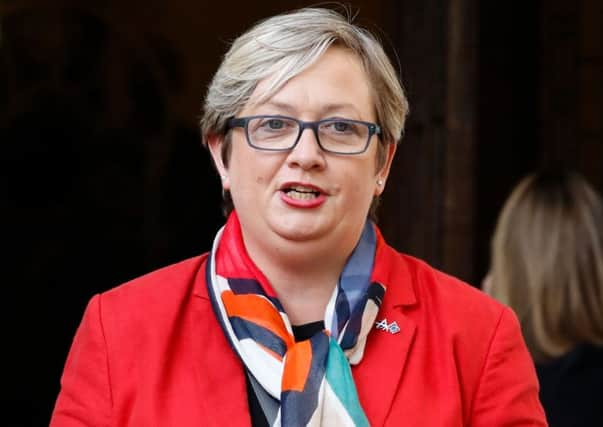Let’s be more restrained on social media this year – Murdo Fraser


The sheer volume of online abuse directed at politicians has become a talking point in recent years. More than 50 Members of Parliament chose not to contest the General Election, with four female politicians citing issues of bullying as the principal reason for them deciding to step down. SNP MP Joanna Cherry had to have a police escort to her constituency surgery following what police believed was a credible death threat. She was subject to misogynistic, homophobic and anti-Catholic abuse, and in addition reportedly had her car keyed during the election campaign.
The defeated Conservative candidate, and former MP, in Angus, Kirstene Hair, stated that the abuse she received was far more intense than that directed at male colleagues. She told the BBC of her worries that this online abuse would translate into something more serious, a legitimate concern in the wake of the tragic murder of the Labour MP Jo Cox.
Advertisement
Hide AdAdvertisement
Hide AdThe Conservative candidate at the General Election in Perth and North Perthshire, Angus Forbes, a self-employed photographer, had to deal with malicious fake negative reviews on his business website. Campaign offices in other parts of the country were subject to graffiti and vandalism. And many other candidates reported verbal and online abuse.
The evidence would suggest that the problem is getting worse. The growth of social media has increased the opportunity for those with an axe to grind to express their views directly to politicians in a public forum. But, in the historical context, it might be wrong to assume that the situation today is worse than it has been at any point in the past. The history of general elections going back to the 19th century demonstrates that these could be robust affairs. Burly “bludgeon men”, often recruited from shipyards or from fighting rings, would be employed by both sides to stand threateningly outside polling stations. Political candidates addressing public meetings could be pelted with stones, faeces and dead cats.
Nor is abusive language towards political rivals a recent development. Disraeli said of Gladstone that he had “not one redeeming defect”, whilst Nye Bevan famously described the Tories as “lower than vermin”.
We should not console ourselves by thinking that we are no worse than those who went before us. We are supposed to be learning from the past, and improving our behaviour, not shrugging our shoulders and muttering, “It’s aye been”.
I often wonder what exactly is the mentality of individuals on social media who feel that it is their right to send vitriol and abuse towards politicians, hiding behind an anonymous profile. Hardly a day goes by when I am not subject to some sort of abuse, being called a quisling, a traitor, or told to leave the country. Even if I read the replies to posts I make on social media (which I seldom do), I have a thick enough skin not to let this worry me. But, for many of those in politics, particularly younger people and women, it can be a distressing experience. And it is undoubtedly putting talented people off from coming forward and seeking elected office.
What can be done to clean up the cesspit that is political social media? I do think there is a role here for the social media companies, such as Twitter. It is simply too easy for any individual to set up an anonymous Twitter account and then use it to bombard those of a different political persuasion with abusive messages. Whilst tweets can be reported for inappropriate language, in my experience the bar is set very high in terms of what is viewed as permissible, and in any event, this is only addressing the problem after it has occurred.
It is the anonymity of social media that makes abuse so prevalent. If individuals were required to identify themselves, they might be much less prepared to send vitriol to complete strangers who just happen to take a different political view. If they knew that family members, friends and work colleagues could see what they were posting, they might just pause and think before pressing Send on a torrent of vile abuse. This would require a change of policy on the part of social media companies, but it is a step that needs to be taken.
But we cannot just blame the social media companies for a negative aspect of human character. This is an area where each and every one of us has to take personal responsibility.
Advertisement
Hide AdAdvertisement
Hide AdThe rise in identity politics, with our country divided on binary constitutional questions such as Brexit or independence, has undoubtedly contributed to the toxicity of the political debate.
With, hopefully, no election in prospect in this New Year of 2020, it might be hoped that the political atmosphere will become a little less febrile.
Perhaps we should all resolve at the start of this New Year to exercise more self-restraint, and just be nicer to each other, regardless of our differing political views. That would make the world of politics a better place to be, and it might help in attracting to stand for Parliament, and other public offices, those who are currently put off by today’s toxic environment.